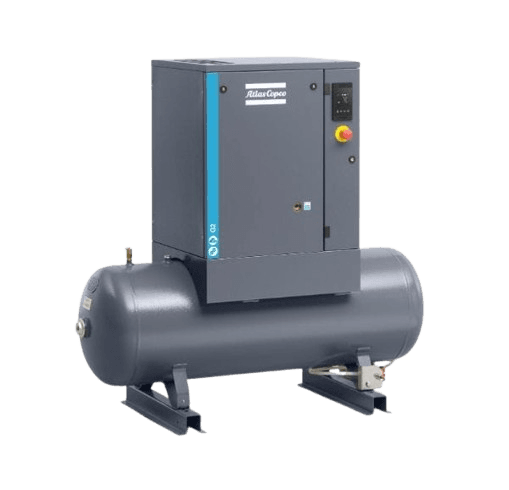Services
Air Compressors for the UK Energy Sector
Compressed air is more than just a utility in the UK energy sector, it’s a strategic enabler of uptime, safety, and compliance. Compressed air accounts for nearly 10% of all industrial electricity use in the UK. In energy-intensive sectors, that figure climbs significantly, making air system performance a serious operational concern.
Whether supporting turbine startups at CCGT plants, powering pneumatic tools on oilfields, or maintaining Class 0 air purity in wind turbine blade manufacturing, the performance of your compressed air system directly impacts operational success. We explore how optimised air systems reduce risk, energy use, and compliance overhead across the sector.
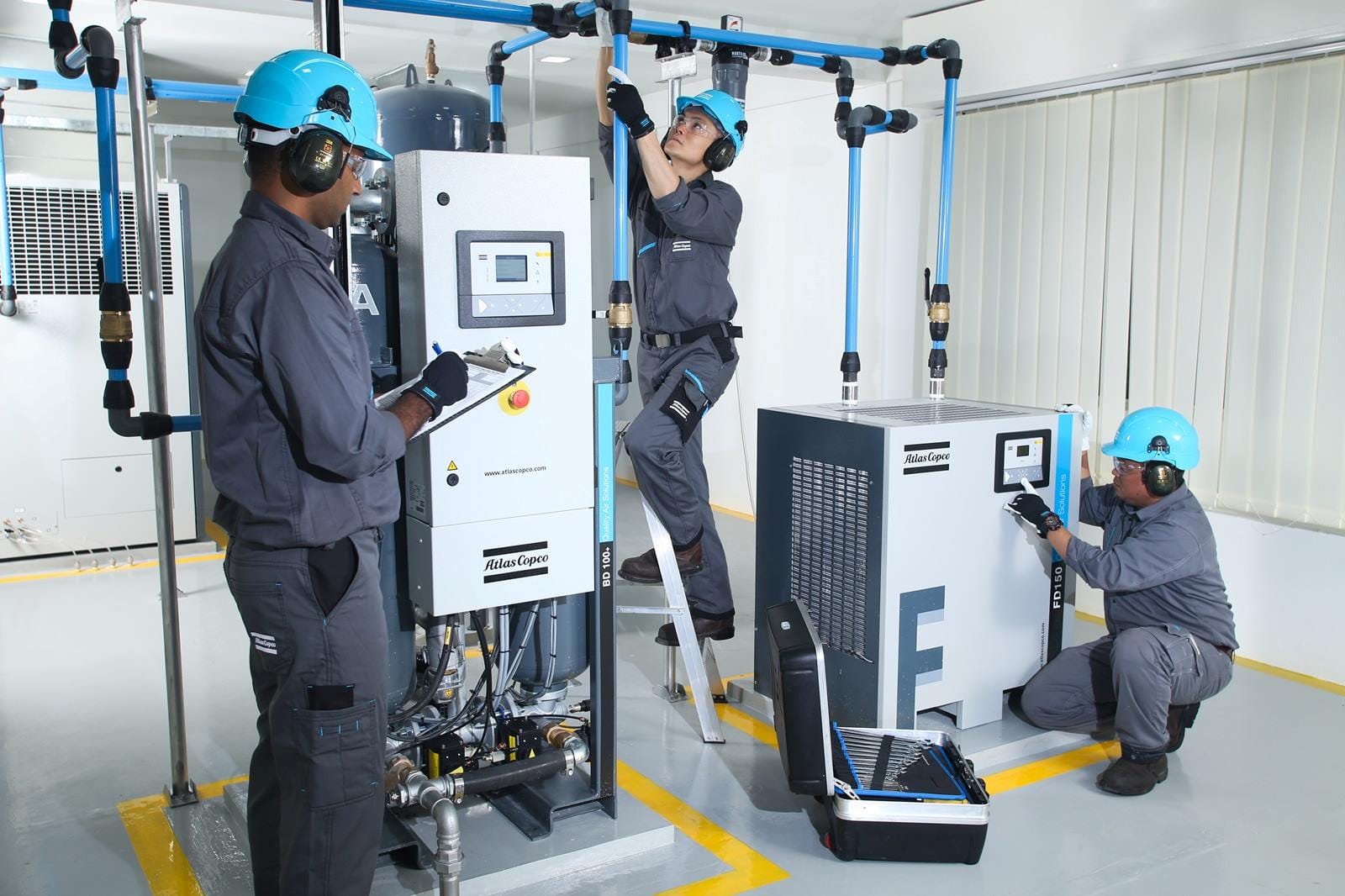

Tailored Compressor Solutions for Every Energy Sector
The primary operational risk, be it safety, downtime, or quality, differs across each energy sub-sector. Engineering the right compressed air solution means directly mitigating that specific risk.
Power Generation (Biomass & CCGT): Mitigating Costly Downtime
For large-scale power stations, unscheduled downtime results in immediate and significant revenue loss. Compressed air systems are integral to core processes where failure is not an option.
- Turbine Startup & Purging: Provides the high-volume air required to turn turbine shafts and purge systems of residual gases before ignition.
- Soot Blowing & Ash Handling: Supplies the power for pneumatic conveying of fly ash and for soot blowing to clean boiler tubes to ensure efficient heat transfer.
- Instrument & Control Air: Provides a continuous supply of clean, dry air for the exact operation of control valves, dampers, and actuators in the plant.
Reliability is the primary objective. Solutions often involve robust centrifugal compressors for meeting baseload demand, supported by versatile oil-injected screw compressors for handling fluctuating loads and ensuring maintenance. For example, a significant upgrade at a UK refinery replaced two fixed-speed compressors with one ZR baseload and a GA VSD+ trim unit. The addition of a heat-of-compression MD dryer and SMARTLINK controller resulted in 35% energy savings and dew point stability of –30°C.
Renewable Energy Manufacturing: Guaranteeing Absolute Purity
In the high-technology manufacturing of components like wind turbine blades, air purity is non-negotiable. Any contamination can compromise structural integrity, leading to catastrophic product failure and scrapped batches worth millions.
The only acceptable solution is a guaranteed supply of 100% pure, clean air. This is achieved using certified Class 0 oil-free compressors that eliminate any risk of oil contamination in critical processes like:
- Vacuum-assisted resin infusion
- Powering precision pneumatic finishing tools
- Non-destructive testing (NDT)
Onshore Oil & Gas: Ensuring Safety in Hazardous Environments
In onshore production environments, compressed air is a preferred power source for its intrinsic safety. The primary challenge is ensuring all equipment is compliant for use in potentially explosive atmospheres (ATEX/DSEAR zones).
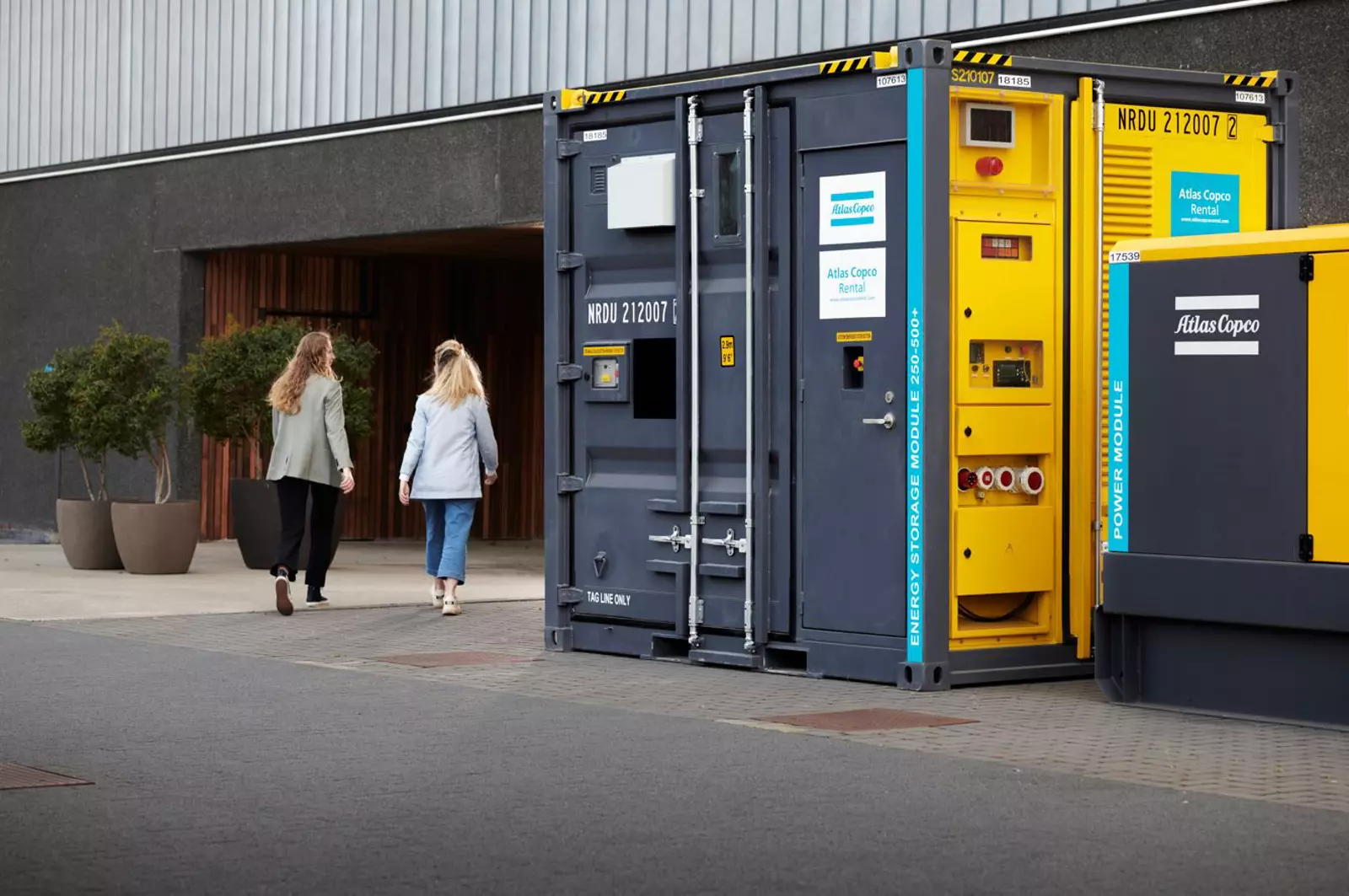

- Instrument Air: Powers pneumatic actuators and control valves, regulating hydrocarbon flow. The air must be clean and dry to prevent instrument failure.
- Pneumatic Tools: Safely powers tools, hoists, and pumps where electrical equipment would present an ignition risk.
- Nitrogen Generation for Oil & Gas: Delivers feed air for on-site nitrogen generators that produce an inert atmosphere for purging tanks and pipelines.
All installed equipment is specified for ATEX Zone 1 or 2 operation, sealed electricals, ducted intakes/exhausts, and stainless condensate lines for corrosion resistance.
Efficiency, Quality, and Long-Term Performance
Reduce Energy Costs with VSD and Heat Recovery
Reducing lifecycle cost while ensuring air quality starts with system design. Atlas Copco’s VSD compressors match output to demand in real-time, cutting energy usage by up to 50%. This can be enhanced by implementing energy recovery for air compressors to capture waste heat for other processes.
Meet ISO 8573-1 and BS EN 12021 Air Quality Standards
Coupled with air treatment systems (refrigerant, desiccant, or heat-of-compression dryers), systems are designed to meet ISO 8573-1 Class 0, 1.2.1, or 2.4.2 depending on the application. Compressed air quality is verified against these standards, with further testing to BS EN 12021 for any breathing air applications.
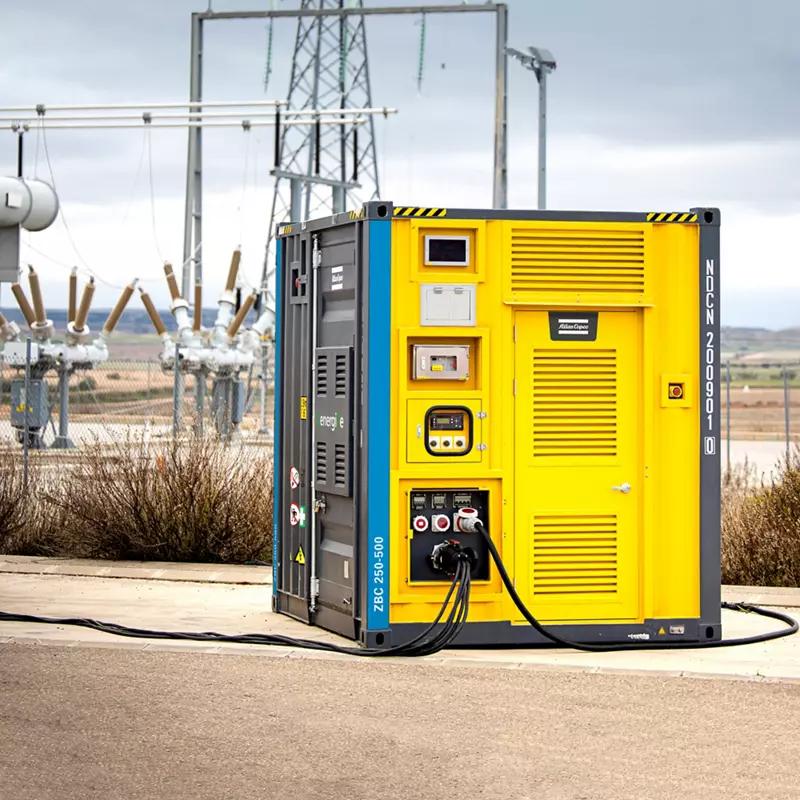
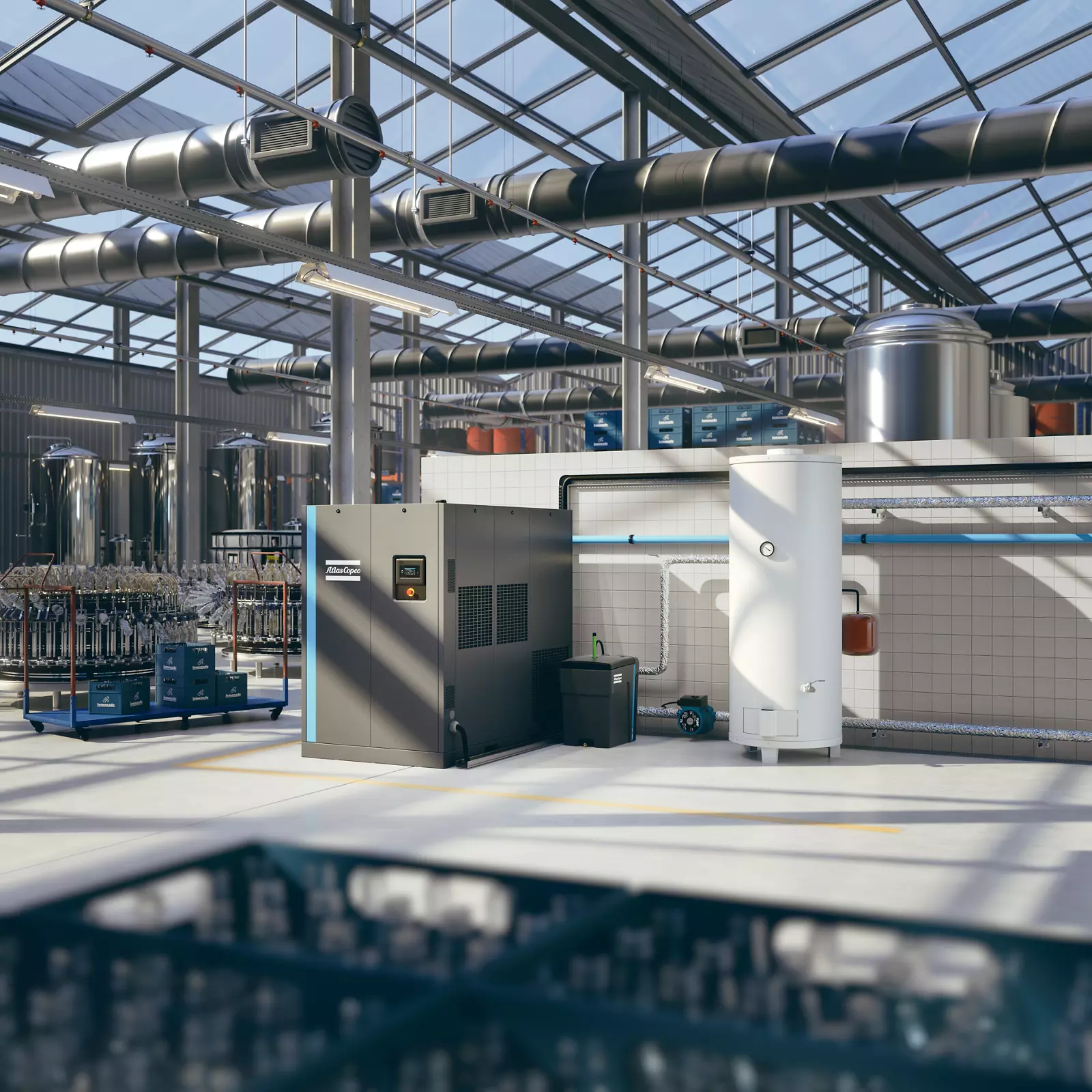
Manage Compliance and Maximise Uptime with Expert Support
Technology alone is not enough. A truly optimised compressed air system is supported by deep technical expertise and comprehensive lifecycle management. As a Premier Atlas Copco Distributor, Search Air combines world-class equipment with end-to-end service.
Navigating Regulatory Compliance
| Regulation | Requirement | Your Solution |
|---|---|---|
| PSSR 2000 | Written Scheme of Examination (WSE) for pressure systems | WSE creation, management & certification by a Competent Person |
| DSEAR/ATEX | Zone 1/2 rated equipment for explosive environments | Certified ATEX compressors, safe-area install design |
| BS EN 12021 | Breathing air testing every 3 months | Certified on-site air testing and compliance certification |
Frequently Asked Questions
How much energy will I save with VSD technology?
Energy savings are typically in the region of 30-50% depending on your load profile and system design.
Do you support mixed-brand compressor fleets?
Yes. Our engineers are trained to service, audit, and optimise equipment from all major OEMs, not just Atlas Copco.
How often should I conduct a compressed air energy audit?
We recommend an ISO 11011-compliant audit every 12–18 months, or after any significant changes to central systems or production processes.

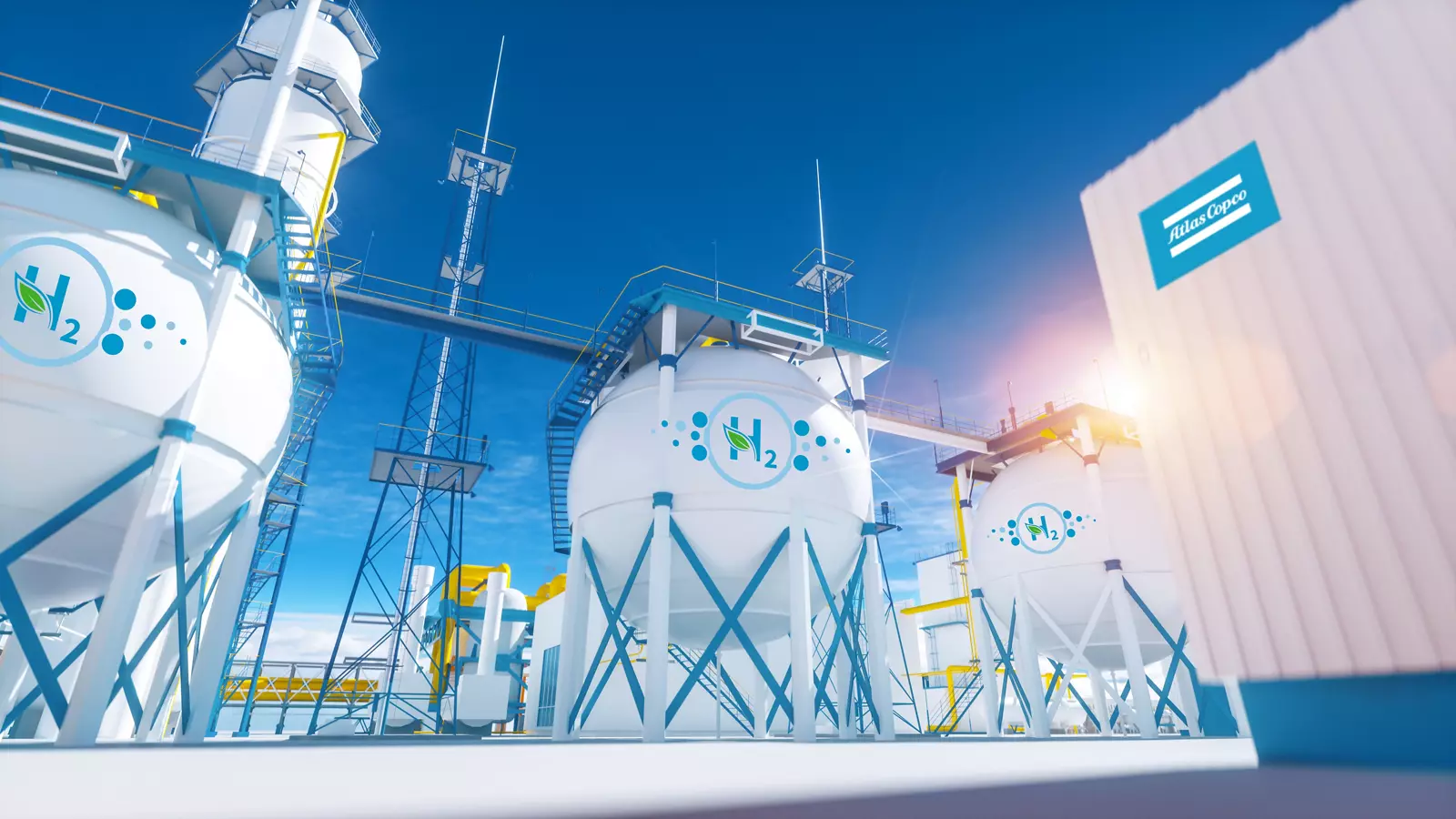
Build a More Resilient and Efficient Compressed Air System
Contact our energy sector team to schedule an ISO 11011 audit, request a PSSR-compliant system review, or explore Class 0 upgrades for your site.
📞 Call 0113 263 9081 or email air@wgsearch.co.uk
Want to know more about our energy sector service?
Contact us